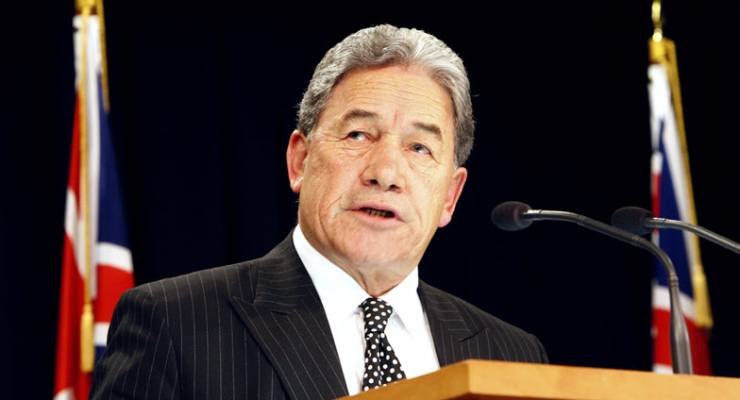
Jacinda Ardern is the new Prime Minister of New Zealand but not before the nation nearly ran out of potato chips.
Economically centrist, socially conservative party New Zealand First, led by 72-year-old contrarian Winston Peters, has held the balance of power in negotiations between the incumbent National party looking for a fourth term, and Ardern’s revitalised Labour party.
NZ First chose to go with Labour at 6.50pm last night making Jacinda Ardern the 40th Prime Minister of New Zealand. Peters announced his preferred coalition partner live at a press conference, meaning Ardern learnt she would be PM a the same time as the rest of the country, in a tidy piece of theatre.
Ardern announced that NZ First would be given four cabinet positions and one under-secretary position — while Peters has been offered the deputy PM position. It would be advisable for Ardern to ensure Peters takes the role to keep him busy and out of scraps. (This is the man who yesterday told the waiting media scrum that there was no announcement on the government yet because he was going to breakfast. It was 1pm.)
The Green Party are joining Labour and NZ First not in a formal coalition but a “confidence and supply” role, which will include approximately three ministerial positions outside cabinet.
Over the next week, all the exact deals and ministers appointments will be announced. That is after NZ breaks, rather poetically, for the Labour Day weekend.
New Zealand’s political journalists can now relax from the siege setting of the last 12 days, which had journos from rival news organisations tag-teaming toilet breaks, just in case Winston pulled the pin. Last week I found myself speaking like I was in a World War II film when I told a curious Australian colleague that “we expected it would all be over by Christmas”.
A quick recap from last week’s Bachelorette, er, I mean NZ’s election. Because the incumbent National Party did not capture enough votes in the September 23 general election to govern alone, Winston Peters and his NZ First party held the balance of power. While the Labour Party, after years in the wilderness, enjoyed a surge in popularity with new leader Jacinda Ardern, there were still not enough seats for a Labor-Greens coalition to close out Peters. When the special votes were returned over two weeks ago, Labour and the Greens gained an extra seat each while National lost two.
Peters has spent the last three weeks berating each and every journalist he could find for everything ever.
The cause of his chagrin seems to stem from what he felt was a lack of media attention paid to his party during the lead-up to the election, accusing the media of having given the majority of attention to the leaders of the National and Labour parties.
However it should be noted that Peters refused to perform in a televised debate that was held for the leaders of the minor parties and when he was interviewed at length by a serious journalist in a long form format, he had to admit that the budget calculations on his own parties website were incorrect. Rookie mistakes from a veteran.
Peters had estimated a decision would be made by October 12, and when that passed he said that the board of his party was having some logistical issues in all getting together in the same location. When media tried to find out who was on the board of NZ first Peters declared he would not reveal its membership. Many of us still weren’t sure he would even announce a government last night (personally I wouldn’t have been surprised if he got up and lip-synced “My Way” before saying it was lunch time, because it was 8pm).
Peters revels in his anti-establishment vocalisations and in choosing to form a government with a left-leaning party led by a young woman he only burnishes that reputation. In his opening words at his press conference last night, he gave an early clue on what decision his party had come to when he said that “For far too many New Zealanders have come to view today’s capitalism not as their friend but as their foe”.
Political insiders say that at 72 Peters is very aware that this coalition choice is the most defining one of his entire career. He’s always said he represents “the forgotten people”, and this was his last chance to demonstrate that.







This does suggest that income and wealth inequality may be starting to bite as an issue among politicians. In doing that Winston Peters may really be making New Zealand first.
Fair play to him. At some point social conservatives are forced to recognise that economic distributions are a factor in the preservation of socially conservative ends. This has always been factored into Catholic ideas about distributism. It is a point that appears to be completely lost on Australia’s politically ‘muscular’ Catholics. I’m glad that it hasn’t been lost on Peters, who has his own ends to ‘conserve’.